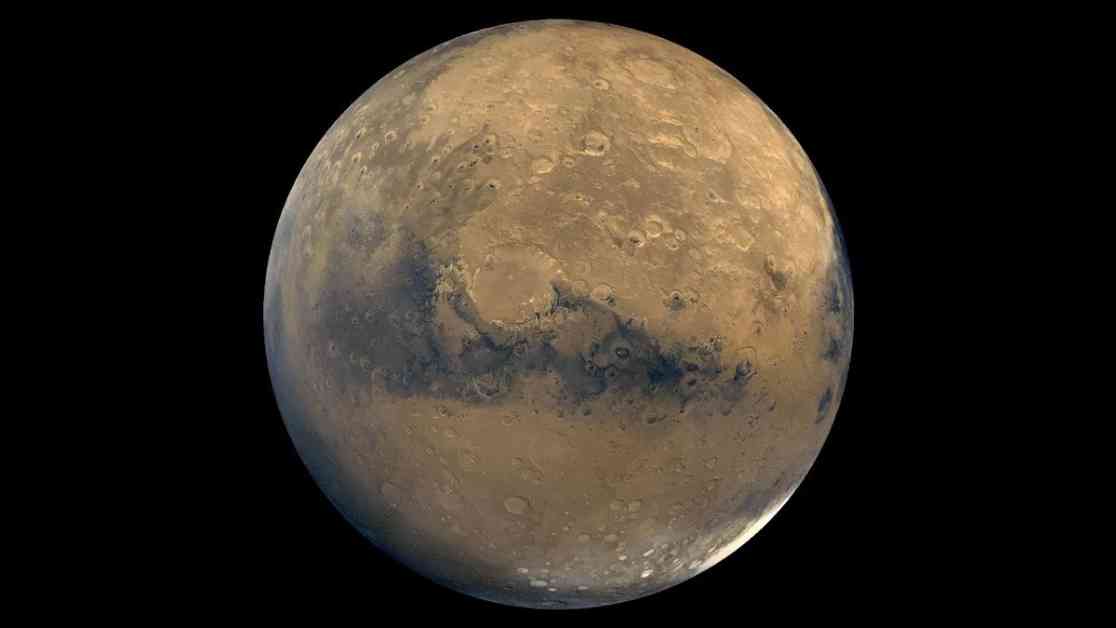Mars has always fascinated scientists and researchers due to its potential for sustaining life. Recent research led by planetary scientists at Harvard University suggests that Mars’ magnetic field may have lasted longer than previously thought. This magnetic field played a crucial role in protecting the Red Planet’s surface from harmful cosmic rays and solar winds, making it more hospitable for life.
The geodynamo effect deep inside a planet creates a planetary magnetic field. On Earth, the core consists of a solid inner core and a molten outer core, which generate convection currents that produce a magnetic field. However, Mars, being smaller in size, cooled quickly, leading to the cessation of convection and the collapse of its geodynamo.
Previous studies indicated that Mars’ global magnetic field disappeared over 4.1 billion years ago, coinciding with the formation of impact basins on the planet. These basins did not show any signs of strong magnetism, leading scientists to believe that the magnetic field had ceased at that time. However, new research challenges this assumption.
Sarah Steele and her team conducted a detailed analysis of the Martian meteorite Allan Hills 84001, revealing evidence of magnetic field reversals. Computer modeling further supported the hypothesis that Mars’ magnetic field was undergoing a pole reversal around 3.9 billion years ago, instead of completely disappearing. This extended timeframe could have significant implications for the evolution of Mars and the potential for life to thrive on the planet.
The presence of a magnetic field would have shielded Mars’ surface from radiation and facilitated the existence of water, as evidenced by NASA Mars rovers. This finding also impacts the understanding of atmospheric loss on Mars, as a prolonged magnetic field could have delayed this process. Scientists are now reassessing their timeline of Mars’ changing conditions based on these new insights.
The research, published in Nature Communications, opens up new possibilities for understanding Mars’ ancient history and its potential for harboring life. By reevaluating the role of the magnetic field on the Red Planet, scientists are uncovering valuable information that could reshape our understanding of Mars and its evolution over billions of years.




